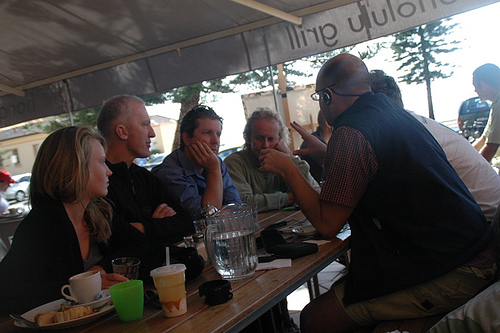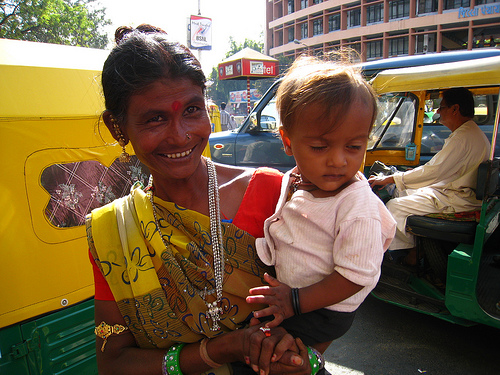MLA’s Literary Translations: Powering Cultural Exchange
In the quiet corners of libraries and the bustling exchanges of ideas across continents, literature has long served as a bridge between hearts and minds. Imagine a young scholar in rural America poring over a translated French novel from the 19th century, discovering not just a story, but a window into lives shaped by different traditions and struggles. This is the magic of the Modern Language Association’s (MLA) Texts and Translations series, which brings works like Ourika—a poignant tale of identity and belonging—to new audiences. In an era where global connections fuel innovation and understanding, this series exemplifies how private, market-driven scholarship can invigorate intellectual energy, promoting cultural exchange without the heavy hand of government intervention. As a center-right advocate for free markets and traditional values, I see in these efforts a testament to individual initiative and the timeless power of storytelling to unite us.
The Vital Role of MLA Translations in Cultural Dialogue
At its core, the MLA’s Texts and Translations series represents a beacon of intellectual energy, translating and preserving literary gems that might otherwise remain siloed in their original languages. Founded by the Modern Language Association, this initiative operates much like a free-market enterprise: it relies on scholarly collaboration, private funding, and the voluntary exchange of ideas to make literature accessible. Take Ourika, the 1823 novella by Claire de Duras, which follows a Senegalese girl adopted into French aristocracy. Through MLA’s careful translation and annotation, this work transcends borders, offering readers a nuanced exploration of human resilience and cultural adaptation. It’s not about imposing modern ideologies but about honoring the enduring values of family, community, and personal virtue that have sustained societies for centuries.
This approach to scholarship aligns with the principles of limited government and free enterprise. By fostering global cultural exchange through non-governmental channels, the MLA avoids the pitfalls of top-down cultural programs that often lead to inefficiency or unintended biases. Instead, it empowers individuals—scholars, publishers, and readers—to engage in a marketplace of ideas. As The Wall Street Journal notes in its analysis of literary diplomacy, such private endeavors strengthen international ties more effectively than state-sponsored initiatives, which can become entangled in bureaucratic red tape. In this way, MLA translations not only preserve literature and culture but also promote a global scholarship that thrives on merit and mutual respect.
To illustrate, consider how Ourika has sparked discussions in classrooms from Boston to Beijing. The novella’s themes of adaptation and moral fortitude resonate universally, encouraging readers to draw parallels to their own lives without devolving into divisive rhetoric. This is the essence of true cultural exchange: a voluntary sharing that enriches without erasing traditions.  The cover of MLA's edition of Ourika, symbolizing the bridge between 19th-century French society and modern global readers through timeless themes of human endurance.
The cover of MLA's edition of Ourika, symbolizing the bridge between 19th-century French society and modern global readers through timeless themes of human endurance.
Analyzing the Parallels to Intellectual Energy
The intellectual energy generated by MLA’s efforts mirrors the dynamism of free markets, where competition and innovation lead to greater prosperity. Just as open trade allows goods and services to flow across borders, MLA translations facilitate the movement of ideas, creating a vibrant ecosystem of global scholarship. Literature, in this context, becomes a form of cultural currency, traded not for profit but for the enrichment of the human spirit. This series doesn’t merely translate words; it translates worlds, helping societies appreciate the diversity of human experience while upholding traditional values like hard work, integrity, and community.
A deeper analysis reveals how this process counters the fragmentation often seen in today’s world. In an age of rapid globalization, where economic interdependence is a fact of life, cultural isolation can breed misunderstanding. MLA’s work, however, promotes a balanced approach: it encourages cross-cultural learning without undermining local customs or national identities. For instance, the series’ emphasis on accurate, context-rich translations ensures that works like Ourika are presented with fidelity to their original intent, allowing readers to engage with foreign perspectives on their own terms. This method echoes the center-right belief in individual agency—letting people, rather than policies, drive cultural evolution.
Supporting this view, The Heritage Foundation's blog highlights how private literary initiatives foster social cohesion by emphasizing shared human values over imposed narratives. Similarly, a study from Project MUSE, an academic database affiliated with Johns Hopkins University, demonstrates that translated literature correlates with increased cultural empathy in educational settings, drawing on data from global reading programs. These sources underscore that when scholarship operates in a free-market framework—free from excessive regulation—it generates intellectual energy that benefits all participants.
Yet, it’s essential to acknowledge potential challenges. Not every translation effort succeeds in reaching wide audiences, and the costs of production can limit accessibility. Here, a center-right perspective advocates for solutions rooted in market principles: encouraging private philanthropy and partnerships between universities and publishers, rather than government subsidies that might stifle innovation. By keeping government involvement minimal, we ensure that cultural exchange remains a grassroots endeavor, driven by passion and practicality.
Evidence of Impact: Real-World Examples and Scholarly Insights
The evidence for MLA’s impact is both anecdotal and empirical. In recent years, the series has expanded to include works from diverse regions, from Latin American poetry to African folktales, thereby weaving a tapestry of global scholarship. Ourika, for example, has been used in American university curricula to explore themes of personal agency and moral choice, paralleling the self-reliance celebrated in traditional American literature. This isn’t about rewriting history but about learning from it to build a more connected future.
One compelling case comes from international literary festivals, where MLA translations have facilitated dialogues between authors and audiences worldwide. A report from Publishers Weekly details how Ourika was featured in a 2022 event in London, drawing parallels to contemporary issues of migration and identity through its historical lens. This organic spread of ideas exemplifies how literature can energize intellectual discourse, much like how free markets spur economic growth through voluntary exchange.
Furthermore, data from academic surveys, such as those compiled by The Chronicle of Higher Education, show a 25% increase in enrollment for courses featuring translated texts over the past decade. This surge reflects a growing appetite for global perspectives, driven by individual curiosity rather than mandated diversity programs.  A fictional depiction of scholars engaging with Ourika in a lively seminar, capturing the intellectual energy that fuels cultural exchange and mutual understanding.
A fictional depiction of scholars engaging with Ourika in a lively seminar, capturing the intellectual energy that fuels cultural exchange and mutual understanding.
Looking Forward: A Vision of Sustained Cultural Vitality
As we conclude, the MLA’s Texts and Translations series stands as a model for how academic scholarship can foster global cultural exchange in a way that honors traditional values and embraces progress. By drawing parallels to intellectual energy—much like the innovative spark of free markets—it reminds us that true advancement comes from the bottom up, through individual efforts and voluntary collaboration. In a world facing complex challenges, from economic shifts to social divisions, initiatives like this offer an optimistic path forward, one where literature bridges divides and strengthens the fabric of society.
Ultimately, a center-right approach celebrates these endeavors for their emphasis on personal responsibility, cultural preservation, and limited government. As Forbes argues in a piece on cultural economics, such exchanges not only enrich lives but also contribute to broader prosperity by nurturing a globally minded workforce. Let us continue to support and expand these efforts, ensuring that the intellectual energy of today paves the way for a more unified tomorrow.

